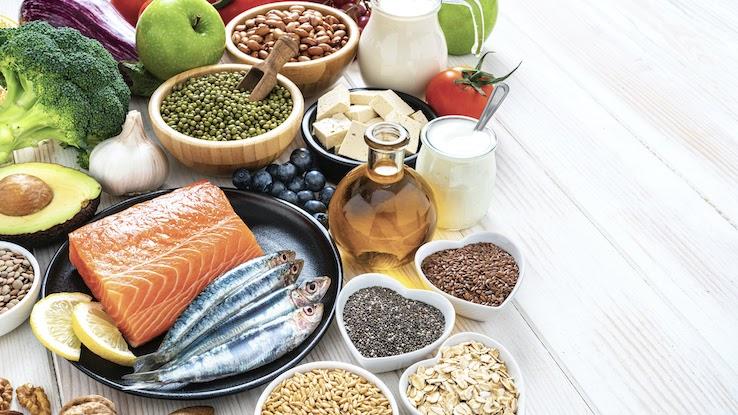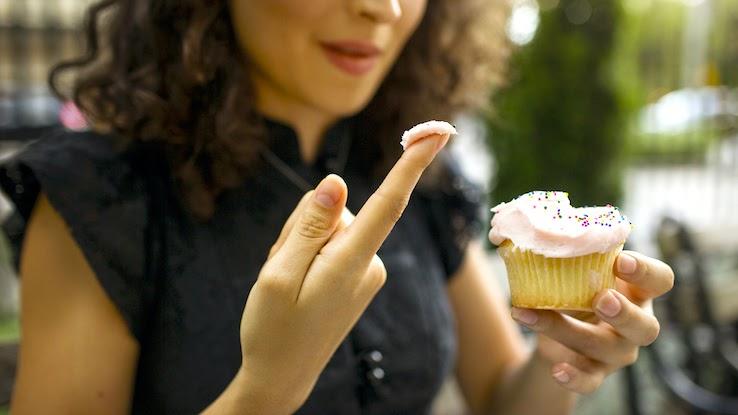
Ready to start seeing things in a new light? If you’re looking for different ways to prevent vision loss, it’s helpful to know that eating certain foods can assist you in this goal. While you may need to undergo medical procedures to reverse vision loss that you’ve already experienced, making some changes to your diet is an affordable (and nutritious) way to stop or slow vision issues from progressing further. Learn about 10 healthy foods to eat that can prevent vision damage — and a few foods to avoid when you want to keep your eyes in good shape.
Enjoy These Foods for Better Vision

To get started on your dietary journey to slow vision loss, take a look at this selection of helpful food choices — and get ready to draft your grocery list.
Nuts: Walnuts have omega 3 fatty acids and vitamin E, which are both very beneficial to eyesight. These nuts can help to reduce the risk of age-related macular degeneration, which is a condition that develops as you get older and causes blurry vision. Be careful to eat walnuts in small portions; they have a lot of calories, which can cause inflammation in your eyes over time.
Eggs: Egg yolks contain many of the nutrients your body needs to stay healthy. Their lutein and zeaxanthin can be especially helpful to your eyes. Just be sure to eat eggs in moderation because of their higher cholesterol levels.
More Ideas
Salmon: Fatty fish such as salmon and tuna are rich in vitamins and omega 3 fatty acids. Salmon can help your body absorb nutrients efficiently and improve your overall eye health.
Green vegetables: Broccoli, spinach and kale are all beneficial for your eyesight because they contain nutrients like vitamin A, vitamin B12, vitamin C and calcium. Spinach, in particular, has lutein and zeaxanthin, which are actually present in your eyes. Be careful to not overcook these veggies; doing so can remove some of their nutrients.
Dark chocolate: Flavonoids and antioxidants are compounds in dark chocolate that can protect the blood vessels in your eyes. These nutrients can also help when the lenses and corneas in your eyes start to weaken over time. Dark chocolate also has many other nutrients that can be beneficial to your body. But remember to eat it in moderation — it typically contains a lot of calories.
Bilberries: Anthocyanosides, which are compounds that help your eyes’ retinas work properly, are present in bilberries. They may be helpful in preventing conditions like glaucoma and cataracts, too.
Even More Ideas
Strawberries: Because of their high vitamin C content, strawberries can be very helpful for your overall eye health. They may also prevent cataracts because they’re rich in antioxidants.
Carrots: Carrots contain beta-carotene and Vitamin A, which can help keep your retinas from breaking down. Carrots may also be helpful if you have dry eyes. Many other fruits and vegetables that are orange and yellow have similar beneficial nutrients.
Wine: Red wine in particular contains a compound called resveratrol. Resveratrol can improve blood circulation not just in your eyes but in your whole body. However, remember that wine is only beneficial in small portions — think a small glass or two each day.
Legumes: These grains are rich in zinc, which can help prevent eye damage that comes from light. They’re also high in copper, which helps your body make new red blood cells.
Avoid These Vision-Damaging Foods

As much as some foods can help protect against vision loss, there are some that can worsen your vision, too. If you’re eating to slow down vision loss, avoid eating these foods — or just enjoy them in small quantities occasionally:
- Sugar
- Simple carbohydrates
- Red meat
- Most foods in excess
There’s a variety of foods you can eat that may help improve the condition of your eyes. Getting a variety of nutrients is important for your overall eye health, too. As with anything, it’s important to eat a balanced diet and consume most foods in moderation. Talk to your doctor about other steps you can take and learn how you can create a well-rounded approach to limiting your vision loss.
Resource Links
- “Foods for Eye Health,” via Academy of Nutrition and Dietetics
- “The Top Foods for Eye Health,” via BrightFocus Foundation
- “Bilberry,” via Icahn School of Medicine at Mount Sinai
- “Red wine may be good for eye health,” via Eye Clinic London
- “Dark chocolate and its benefits to eye health,” via Eye Clinic London





